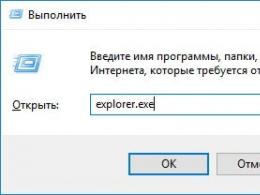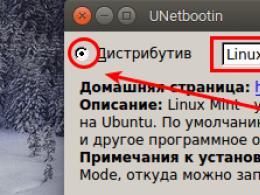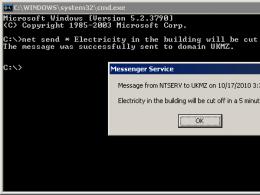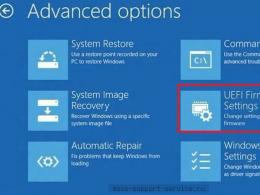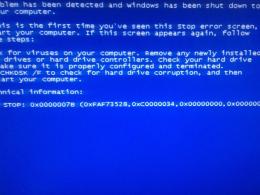What password can you come up with for accounts. How to come up with a strong password and make it easy to remember
In our time, it is impossible to imagine life without a computer and constant input of various combinations. We need it almost everywhere, from starting a computer, registering on websites, entering forums, mail and social networks, for example, Odnoklassniki, and ending with pages and accounts in electronic wallets. If during optional registration somewhere you can not come up with a combination, but randomly specify a keyboard shortcut, then when creating any permanent account, especially if it concerns any money transfers, then the password must be strong.
What password can you think of
Any combination can be hacked, and the data is used by an attacker up to the opening of loans. That is why it is necessary to take care of protection in advance, and change weak combinations to reliable ones.
Password cracking
Easy combinations and combinations in the password can be cracked even by an inexperienced hacker. Very simple method of selection and enumeration of all possible options. This is called brute force. Such as 00000, 11111, qwerty, 123456 and the like are checked immediately, and then various characters are substituted for them. There are special programs for such enumeration, which takes very little time.
 Another popular hacking method is the analysis of all human data. All significant information is collected and substituted into the password. This applies to initials, date of birth and other information. In this way, you can still choose the secret question required to recover the password. Where is personal data collected? Most often in social networks, such as Odnoklassniki, Vkontakte. Here you can find out everything from the husband's name to the dog's name and favorite musical group.
Another popular hacking method is the analysis of all human data. All significant information is collected and substituted into the password. This applies to initials, date of birth and other information. In this way, you can still choose the secret question required to recover the password. Where is personal data collected? Most often in social networks, such as Odnoklassniki, Vkontakte. Here you can find out everything from the husband's name to the dog's name and favorite musical group.
Password storage
Created one strong password, two, and the third is no longer remembered? Because of this, many users create combinations, for example: "1password", "2password" and so on, for various sites. This is wrong, because if one of them is hacked, then the rest will be easy to hack. To save the combinations, get a notepad or file on your personal computer, but not in a place visible to everyone, otherwise some manage to write passwords on the sticker and stick it on the monitor, and not at home, but in the office. Show the same attitude to "secret questions".

Other ways to create a strong password

How secure is it to store passwords on a computer?
Unsafe, there are a huge number of programs that contain so-called "key loggers" or are able to search for valuable files on a hard drive, flash drive or other media. Even if expensive anti-virus programs protect you, it is better to play it safe and store information in paper notebooks.
A strong password can protect you and your data from hackers. On the Internet, any profile requires a "password" to enter. It should be known only to you - and no one else. So you have to try hard to come up with a decent secret combination that is not so easy to recognize. In some cases, you can use one trick, but it still will not be able to completely secure the profile on the Web. What tips should you use to make your "password" difficult to guess?
Numbers, letters, symbols
The strongest password is one that is hard to remember and hard to guess. Therefore, users always think about what to put as a "password" for authorization on various services.
The first advice that advanced "users" give is to use a combination of numbers, letters and symbols in their secret combinations. It is also recommended not to make short passwords - let them be long and difficult to remember. This way you can keep your data safe.
What specific combination to use? This will have to be figured out on your own. However, there are a few more tips to help you create a strong password.
Register
Please note that password forms are often case sensitive. In other words, they distinguish between lowercase and uppercase letters. This is a great opportunity to diversify your secret combination.

When coming up with a strong password, try to combine not only numbers with letters and special characters, but also alternate lowercase and uppercase. This approach helps to complicate the task for attackers. Most importantly, do not forget yourself where which letter is in which case.
It is recommended to capitalize the very first letter, and then alternate according to the "one-by-one" principle. This kind of trick will help you not to get confused in the password you invented. So heed this advice. Which password is more secure? One that uses a variety of registers when writing. It is possible to do without this feature, but it is undesirable.
Changelings
They say you shouldn't use dates that are important to you in passwords. But it's not. It is enough to slightly diversify the approach to this issue. There is such a technique as "shifters". It helps to use important dates for you in the "password". At the same time, it will be very difficult to unravel your secrets.

What is the basis of this principle? At the very beginning of the password you have chosen, you should write some date. For example, your birthday. And at the end - the same date, but upside down. If 123 is written at the beginning, then 321 is written in the conclusion. As you can see, there is nothing difficult in this. Therefore, this technique is used by many users. Remembering the general principle of constructing a "secret record" is easy. So, you will not forget the "password" just like that.
And now it is worth considering in more detail strong passwords. Examples of these using "shifters" - that's what will help you figure out exactly how to make a good combination for authorization in your account on the Web.
Let's assume that the "body" of our password will be the user's first and last name. Then we print: IvAnIvAnOv. Now you should use the "shifters". To do this, take some date. For example, how often is the user's birthday selected. Let in our case it will be May 4, 1988. And we dilute it all with symbolism. In the end, the combination turns out: 4051988!~IvAnIvAnOv~!8891504. Here we have such a complex password. In fact, it is easy for the user to remember it, but it is extremely difficult for attackers to guess. In any case, practice shows just such a situation.
Generation
If you can’t come up with a strong password yourself, you will have to use one little trick. Just do not think that it will completely protect you from hacking. There is nothing better than a personally invented "password".

What reception are you talking about? About using special password generators. They themselves make up "secret combinations" using symbols, letters and numbers. Of course, taking into account the registry. But "shifters" are not used here.
You can download any password generator. Just run the application and click on the "Generate" button (or something like that). You will receive a combination in the form of a password. It can be supplemented or used in its original form.
YouTube is the most popular video hosting on the Internet. Not surprisingly, its security system requires the user to create a complex password with mixed case letters and numbers. For this reason, many account holders forget the set security code.
What you need to know before recovery
Not all users know that in 2006 YouTube was acquired by Google. Since then, the input data from the channel is the same for all services from Google. If the user has forgotten the YouTube password, but remembers the Gmail security code, then you can safely use the latter.
To log into YouTube, you can use the login information of one of the following services:
YouTube channel password recovery
To restore access to YouTube, you must follow the algorithm:
- Go to the official website of the video hosting youtube.com and in the upper right corner, click "Login";
- The user will be redirected to the login page. Here you need to enter your Gmail email and password from it;
- In the window for entering the security code, click on the inscription "Forgot password":

- Next, a page will appear with the restoration of access to the account. Here the user is prompted to enter the last password from the channel that the owner remembers. Click continue if the security code was entered, or click on "Difficult to answer" if you forgot the code:

- To further recover the password from the channel, an Android phone is required in order to receive confirmation. If such a device is available, then returning the code is not difficult. The following instruction will pop up:

- If there is no mobile device with the Android operating system, then click on the option "I can not use the phone";
- After that, an option appears with sending a confirmation code as an SMS message or a phone call. Choose any you like:

- If the user has linked the account to an invalid mobile phone number, then click on the inability to use the device;
- On this page, the owner of the channel will be sent a confirmation email about changing the password to the backup email specified in the profile data:

If the user did not set a backup email on the channel, then you can recover the password by answering a few questions about your account. On this page, you need to describe your account information in as much detail as possible. If the owner does not remember the answer to the question posed, then it is better not to skip it, but write approximately:

Passwords can be the key to a lot of things, like your email, your Facebook profile, or your bank account. Did you know some still like "password" or "123456"? Needless to say, using the same simple password for all of your accounts is dangerous - imagine if a hacker cracked that single password? To be safe, you need to create unique and hard-to-crack passwords.
Do you know how to come up with a good password? And how can you remember more than one? Here are some tips and tricks on how to have different strong passwords for all your online accounts collected.
Know the Signs of a Strong Password
It can't be found in the dictionary
It contains special characters and numbers
It contains both uppercase and lowercase letters
Its minimum length is 10 characters
It cannot be guessed from the user's data (date of birth, zip code, phone number, etc.)
Create an easy-to-remember basic password
You can use several techniques on how to create a password that will not be forgotten. Here are some tips:
Randomly replace letters with numbers, for example, "flirt" becomes "fl1r7".
Take the offer, i.e. your passphrase, and shorten it to the first letters of each word, for example: “Do you sell a Slavic wardrobe? The cabinet has already been sold, I can offer a nickel-plated bed with a nightstand” will become “UVPSSHSHUPMPNKST”.
Take a word and reverse its spelling, for example, "telephone" becomes "nofelet".
These examples are not very reliable. While none of these words can be found in a dictionary, they lack other hallmarks of a strong password. Try to find a combination that will allow you to implement all the traits.
The base password I'm going to use will be "Uvp5Sh?Shup_mpNK6T:)". You won't find it in a dictionary, it contains special characters, it's 18 characters long, it can't be deciphered from my personal data (unless you suspect me of loving Soviet films).
Be creative and original!
The computer may be able to calculate faster than we can recognize patterns, much faster than any human brain, but one thing it cannot do is be creative. This is your huge advantage over hacker programs. As you can see, in my password I have replaced some letters with numbers. However, I did not use hard and fast rules. I replaced "C" with 5 and 6. If you use rules to replace characters, such as always replacing "a" with "@", it will weaken your password.
Here are some ideas about how to make it even harder for a hacker to crack a password:
Do not use common substitutions, such as "@" for "A".
When you have duplicate characters in the same password, mix up substitutions, such as "8" or (for "b.
Take the word and type it on the keyboard in the “gly” (wrong) place.
Take the sequence on the keyboard and type it by alternately pressing the SHIFT key, for example, Xdr%6tfCvgz/
Check your password
Want to make sure your password is actually strong? The Password Meter program will reveal to you all the strengths and weaknesses of the password. However, if the password is too long, ie. too reliable, the check will fail.
Creative different passwords for each account
Once you have a strong base password, you can use it to create different passwords for each of your online accounts. Just add the first three letters of the service, for example, it will be "Uvp5Sh? Shup_mpNK6T:)GMa" for a Gmail account or "Uvp5Sh? Shup_mpNK6T:)eBa" for eBay.
Be super safe
To become super secure, you need to have TWO base passwords. They will serve to separate important and not-so-important accounts. You must use the same password for sites that contain personal information and credit card information, such as PayPal or Gmail. And the second password should be used for forums and similar sites that won't do much harm if hacked. However, passwords must be equally strong.
Update passwords regularly
This is the heaviest. To stay secure with a strong password, you need to update it every few weeks or months. The more often, the better. You can do this in several ways. Here are some ideas to help make it easy.
Change only the base password:
Change the special characters you replace letters with.
Alternate between uppercase and lowercase characters.
Enter the password with the SHIFT key pressed.
Change all password:
Change the way you designate the account you're creating a password for, such as using the last three letters instead of the first three ("GMa" becomes "ail" or "eBa" becomes "Bay").
Change the location of the letters that represent the account, for example, put them in the middle of your base password.
Add the last password change date to the back and mark it on your calendar.
In other words, take advantage of the human: be creative and original.
If passwords that are "easy to remember" don't seem secure to you, use passwords that are almost impossible to crack.

